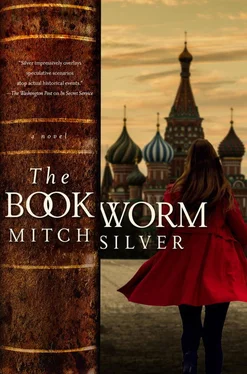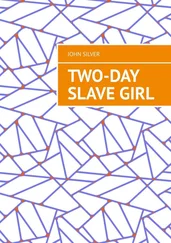Okay, now for the jackpot question: What happened to it?
The Bidding History button told her there had been eighteen bidders. The winner, at 1,902 euros, was a buyer called adler01, with the number 34 and a yellow star after it in parentheses.
Lara got up, took from her handbag one of the ponchiki Cook had given her, and wolfed it down with the last sip of her lukewarm tea. Pacing around the room again, she stopped in front of the goldfish and asked, “What do you think, Mr. Russky? Is it someone named Adler? Or, adler being German for eagle, is ‘eagle01’ their screen name?”
The fish pondered the question and then swam away. Lara sighed. “You’re right, there’s no way to tell. Let’s get some feedback.”
She remembered Viktor’s explanation. “Every time someone buys or sells something on eBay, the other party can leave feedback afterward for everyone to see. ‘The seller sent me the thing I bought and it wasn’t a fake.’ Or, ‘The buyer’s check didn’t bounce.’ It’s how the site builds trust in the whole cyber system of unseen buyers and sellers.”
The screen now said, “View all feedback for adler01.” What followed was a series of comments in German scrolling up the screen, like blurbs for a movie in a newspaper ad. “Great buyer, paid on time!” “Couldn’t ask for more!” “Quick payer!” The most recent posting was a month ago.
Lara clicked the Leave Feedback button. Instead of a statement, she typed in a few questions for the unknown buyer. “Who are you? Where in the world do you live? Do you still have the Bible? Would you be willing to sell it?”
It had been years since the auction ended. Adler might not be checking out his feedback anymore. Still, that number and the yellow star after his name meant he‘d done at least 34 transactions on the site. And if other eBay members were still posting blurbs about him as recently as a month ago…
“Nothing ventured, nothing gained,” she told herself, clicking the Feedback button and posting her questions online. Then she gathered up her things for one more trip out to the Arkhiv and Noël Coward’s big finale.
Four kilometers away, eyes fixed on another computer monitor widened as the keystrokes appeared on the screen. One of the watchers said, “She’s asking some guy if he still has the book. Better tell the boss.”
The second man said, “Before I do, hack into the German server and get me a current address for that adler01.” He rubbed his massive neck and allowed himself a rare smile. “I told you this program would work.”
Chapter 47

Obersalzberg, Germany
Ulrike Preisz felt things were finally looking up. After all the Sturm und Drang of going hat in hand with Horst to the Tourist Office, then to the blowhards on the local Council, then the Preservation people in München and back to Tourism in an endless tail-chasing of meetings and payoffs—only to have the European recession knock everyone for a loop—the place was finally nudging into the black.
It was absurd that politics should decide whether a restaurant succeeds or not, but of course the Kehlsteinhaus was no ordinary restaurant, sitting as it did on the very top of the mountain, with a fifty-mile, 360° view of Bavaria and nearby Austria. Ulrike and her husband, who’d taken over after the previous concessionaires’ default, had made a few simple requests of their landlord, the Berchtesgaden Tourist Office: money for new tables and chairs, an automated window-washing system, a computer at the dining room workstation for entering the orders and one in the kitchen for receiving them, and, best of all, a website—so she and Horst wouldn’t have to be on the phone all day booking tables and rooms in their gasthaus at the foot of the mountain.
The Tourist Office, packed with left-wing holdovers from the previous government, had dragged its feet on the improvements. The place had once been the Adlerhorst, Adolf Hitler’s favorite wartime retreat, and the Socialists didn’t want to appear to be subsidizing “Hitler’s place,” even after all these years.
But when the Merkel government’s appointees finally gained a majority, the reconstituted Tourist Office had ponied up the money, with enough left over for Ulrike to redo the little alcove in the reception area into a proper gift shop, with wallpaper and new lighting, so she could get the books and postcards out of the dining room and bring her few pieces of Hitlerana out of mothballs.
It wasn’t just the view that made people (especially foreigners) tramp through the tunnel to the elevator and come all the way up here. It was the history, Hitler’s history, for better or worse. Worse, of course.
The dinner plate, the knife and fork he’d possibly used, the well-worn blotter and the gold fountain pen set had looked a little skimpy, sitting there on the table. They’d needed something to pull them all together.
Ulrike frowned, interrupting her reverie to pick up a napkin and clean an obvious fingerprint from one of the glasses Klaus had set out on Table 21. Klaus would have to go.
When Ulrike was growing up, Germany wouldn’t have acknowledged there had ever been a Hitler, much less build a national Holocaust museum in the middle of the capital. Then came the great reversal, the acknowledgement of their country’s shameful past. And with it, ironically, along with the dialogue on Hitler, genocide, and national guilt, came a market for the Nazis’ possessions, thanks to German eBay.
She moved over to the computer by the door and clicked away from the Reservations page for the bookmarked site. Under the subhead “ Sammeln und Seltenes ” on eBay.de were 219 “rare and collectible” items. It was pretty much the same jumble sale as there had been the day she’d made her find: books about Hitler, some signed by the authors; wartime letters, with Hitler’s picture on the stamps; a plate someone was claiming had come from the old Reichskanzlei in Berlin. What was she supposed to do with two mismatched plates? Now, if she had a service for eight, or even six, they could promote a special dinner “on Hitler’s own china,” providing the Tourist Office let them. Wouldn’t that be amazing?
When she’d found it, under the heading “Hitler’s Personal Bible,” the thumbnail photo had been dark and hard to make out. Clicking on the listing, she’d found better pictures of a large, leather-bound book, the cover, and a few inner pages. One of the snapshots showed the flyleaf, inked with some old handwriting she couldn’t make out. And the whole book was in Latin. Did Adolf Hitler know Latin? Somehow she didn’t think so.
But the sheet of poetry stuck in the book—something about Barbarossa’s sword—was in German and looked real enough. So did the “A.H.” at the bottom of a couple of comments in its margins. The convincer, though, had been the block of text from the seller in Fort Myers in the USA. It read, “This Bible was ‘liberated’ by a U.S. Army officer in May, 1945, from the Adlerhorst, Hitler’s wartime headquarters in the Bavarian mountains.”
The Adlerhorst! Think of it… something that old Adolf would have handled right in this room! By the time Ulrike had found the listing, people had already run the price up to 1350 euros.
She remembered going to the bidding page and wondering how many eyes all over the world were fixed on that auction just then, one with a picture of GIs in a Jeep staring up at the very place where Ulrike was sitting now?
Horst was out shopping, so she’d taken the chance without him and typed in a bid of 1501, with a maximum up to 1999. If someone in America was willing to pay more than $2500 dollars, they could have it. There were six bids in the final ten seconds of the auction before eBay’s computer flashed her the “Congratulations! You Won!” message. Her winning bid turned out to be 1902 euros, almost the entire rainy day fund.
Читать дальше













